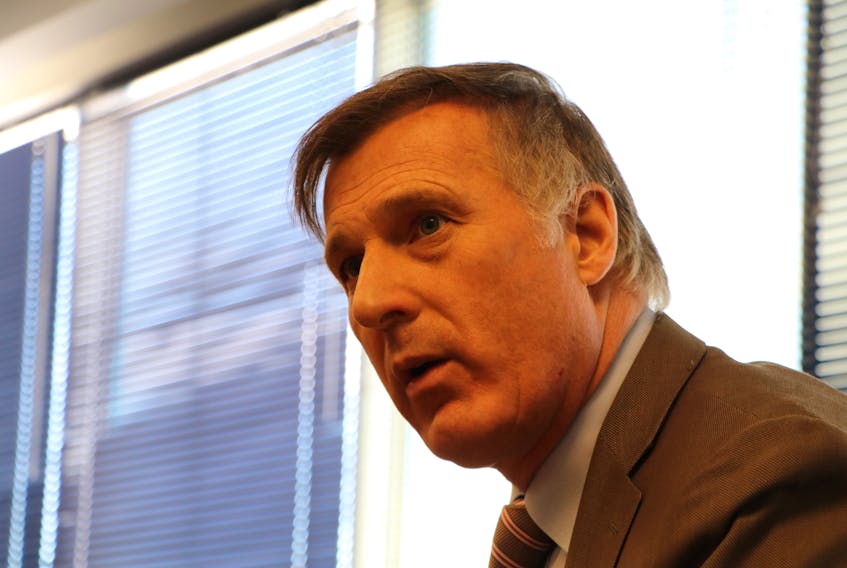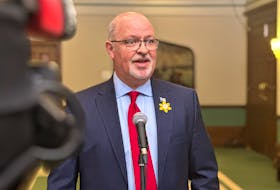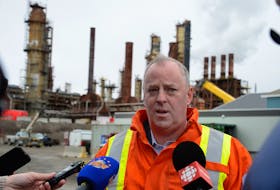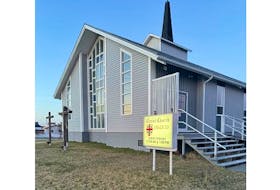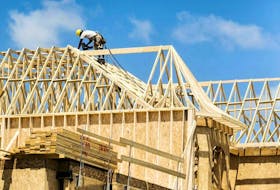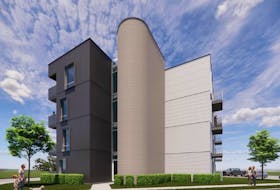Maxime Bernier says it’s time for the federal government to stop giving money to the provinces for health care, to start building pipelines by any means necessary and to reduce the number of immigrants finding a new home in Canada.
Bernier, leader of the newly formed People’s Party of Canada, sat down with the editorial board of The Telegram on Friday afternoon to explain the party’s plans for how the federal government should function.
Bernier says among his priorities is completely reforming the equalization formula. Currently, this province does not make any money from equalization payments, due to far higher natural resource revenue than in other provinces, per capita.
Quebec, where Bernier serves as member of Parliament for Beauce, sees $11.7 billion in equalization payments.
Bernier says the conversation in Quebec is starting to change about equalization payments, which means there’s an opportunity to make large changes.
“The Quebec government doesn’t have an incentive to change their policies at the provincial level. Hydroelectricity, for example, it’s not fully part of the equalization formula. Energy coming from oil and gas is part of the formula. It’s not fair,” said Bernier.
“I’m saying that we must change the formula, but I’m adding we must be less generous.”
Bernier says he would start a review of the equalization formula to reduce it and find a way to more equally distribute the money.
The Parliamentary Budget Office, an independent budget watchdog, recommended changes to the formula last fall that could have seen $560 million more equalization flowing to Newfoundland and Labrador. The federal government later opted not to make any changes to the formula.
On immigration, Bernier wants fewer immigrants, but wants a priority on “economic immigrants,” immigrants who he says have a better chance of immediately gaining employment in their new home.
Bernier wants the number of immigrants allowed by the federal government reduced from 350,000 annually to 250,000 annually. He also wants to abolish the policy of allowing the families of new Canadians to enter the country.
“The real ones, I’m open to that. But do you think that the person that is crossing the border, coming from the state of New York, their life is in danger? No, it’s not fair,” said Bernier.
“We’re not helping the real refugees, and that’s not fair.”
Bernier’s stance on immigration is a softer line than what’s called for by the Yellow Vest movement, but inevitably it lines up. Pair that with a strong pro-pipeline stance, and the two get closer together.
Bernier insists racists are not welcome in his party. As a way to prevent them from joining his party, he says background checks for executive members are in place, going through past social media posts, to root out anyone wishing to join the party who might have racist intentions.
Bernier’s says his core principles can be described as libertarian, which calls for greater individual freedom and a reduction in the role of the federal government.
For example, Bernier says it’s up to the provinces to pay for health care.
“The federal government is transferring about $20 billion a year for health care for provinces. I don’t know what the amount is for this province, but yes, we will abolish that. We’ll abolish the transfer, but I want to be clear. We’ll replace that by a transfer of tax points,” said Bernier.
“It is not the role of the federal government to tax every Canadian and after using that and transferring that to provinces for their jurisdiction in health care. Health care is 100 per cent provincial jurisdiction.”
The federal government transferred $757 million to Newfoundland and Labrador as part of the 2018 provincial budget, largely for health care and other social transfers.
Bernier says abolishing those transfers would force provinces to find a better way of delivering health care services, instead of pressuring Ottawa for more money. To offset that, Bernier says provinces can increase local taxes to make up for the loss of revenue, which would in turn be offset by reductions in federal taxation.
“We want them to know who to blame. We want them to know it will be their provincial government because it’s under their jurisdiction. What is our reform? Instead of transferring the money, we’ll transfer the equivalent tax points,” he said.
“Provinces will have the room to tax for their own jurisdictions.”
In addition, Bernier says he would abolish the Atlantic Canada Opportunities Agency (ACOA), as he sees it as a form of corporate welfare.
When it comes to Muskrat Falls, Bernier didn’t have a lot to say.
“I understand that it’s having a huge impact on the future of this province. What I’m telling you when I’m speaking on equalization, that can answer that. At the same time, when I’m telling you I’ll lower tax on the federal level, you’ll have more room to tax your own people,” he said.
“We need to look at it in, you know, I don’t know if it’s sustainable economically, so that’s a huge problem. If it’s not, the federal government is responsible of that. We’ll have to do more. But I don’t have the solution right now because I didn’t have time to look at all of this detail.”
Bernier says the country needs to focus on real, internal free trade within Canada. As part of that, Bernier believes trade barriers need to be taken down – including barriers preventing electricity and pipelines from going through Quebec.
Bernier says building oil pipelines is essential for the future of the country, and he would run over any potential opposition to do it.
“We will do the consultation that needs to be done, but after, it’s a decision that must be taken by the federal government. We will use the constitution – Section 91.10 – and yes, impose a pipeline in my own province of Quebec,” said Bernier.
“It’s an obligation by the court to do consultation. But, at the end, after consultation if we don’t have an agreement – we’ll do everything to have an agreement – but if not, yes, I’m ready to use (the constitution).”
Bernier says he plans to run 304 candidates across the country in the coming federal election, and intends to have candidates in place in Newfoundland and Labrador. Bernier says he intends to meet with prospective candidates on Saturday. He says he wants all candidates in place by the end of May.
Twitter: DavidMaherNL

